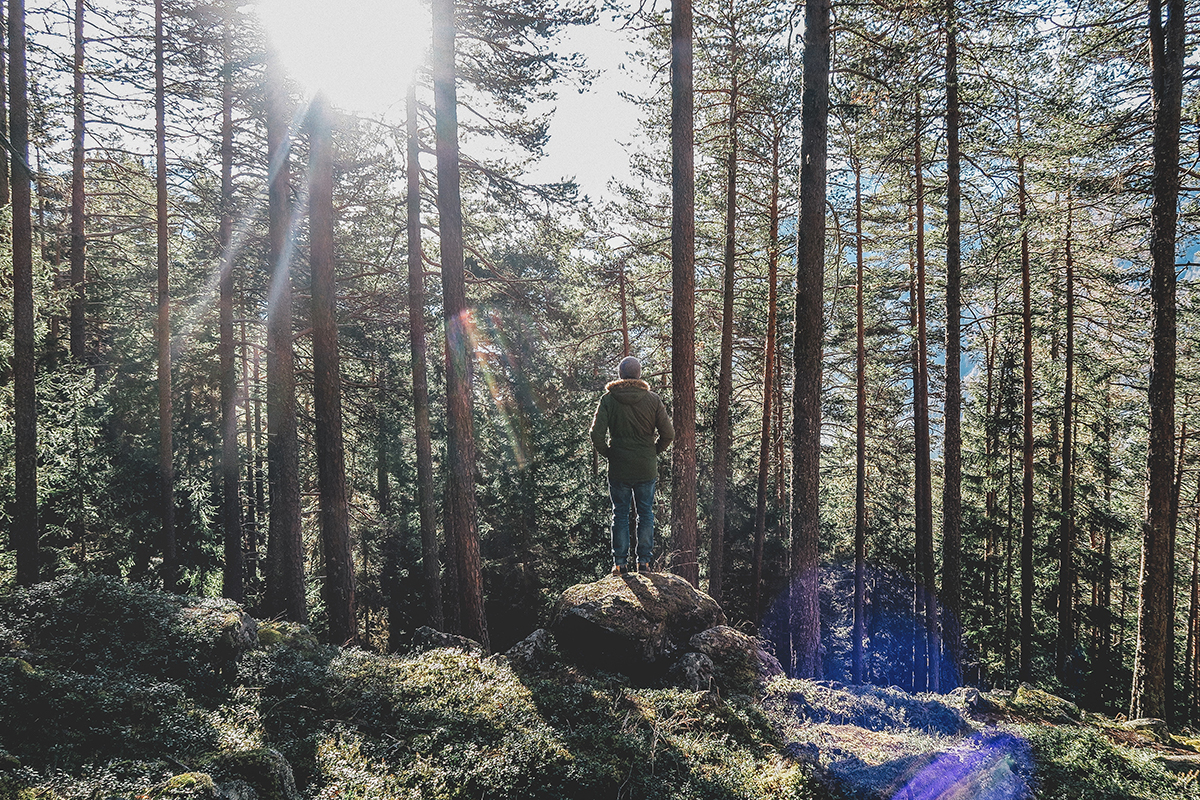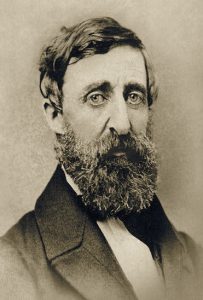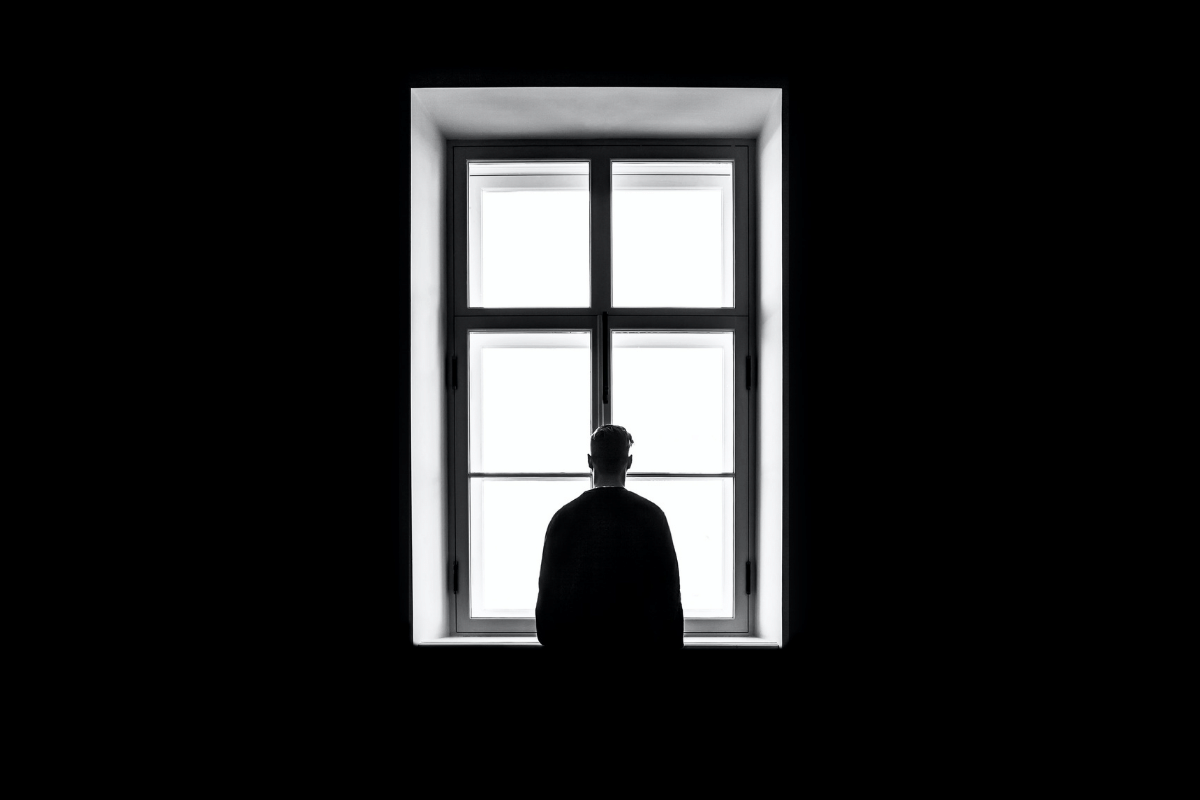recent
Thoreau and the Primitivist Temptation
Abbey’s book is just one example in a sea of recent works of literature, film, and music, which romanticize the idea of leaving society behind to live—often alone—close to nature.

When Edward Abbey died, his friends honored his wishes. They stopped at a liquor store for a few cases of beer and loaded his body into the back of a pickup truck to take him into the desert. He didn’t want a coffin, a funeral, any pontificating or gnashing of teeth. He just want to be buried at some unknown place in the sand, where, as he put it, “I want my body to help fertilize the growth of a cactus or cliff rose or sagebrush or tree.” It was a fitting send-off for a man whose very name became synonymous with the remote regions of the Southwest where he worked and which he chronicled in his books.

He’d come to the desert after finally having had enough of it: the commutes, the congested roads, the small-talk. So he moved by himself to a remote part of Utah and worked as a park ranger in Arches National Park, just north of Moab. Along the way, he wrote in his journal, and the entries, when compiled, would become the 1968 book Desert Solitaire. These 200 or so pages, highly critical of modern society and those who choose to remain part of it, would become the gospel of those who believed the solution to their problems was to “get off the grid.”
Abbey’s book is just one example in a sea of recent works of literature, film, and music, which romanticize the idea of leaving society behind to live—often alone—close to nature. There is Jon Krauker’s Into the Wild, which glorifies a young man who graduates from college, burns his money, and sets off alone in pursuit of, in his view, a more genuine, authentic existence. Initially, rather sympathetic to his journey, the film version ends with him in a less than ideal spot, writing that, “Happiness is best when shared.” The Kinks had their musical tribute to primitivism: “Apeman”: “In man’s evolution he has created the cities and/The motor traffic rumble, but give me half a chance/And I’d be taking off my clothes and living in the jungle.” Then, there is the host of television shows from Man vs. Wild to the Dutch program Adam Zkt. Eva, which romanticize the survivalist streak. When it comes to popular culture, there is a clear fascination with cutting off ties with family and friends and setting off alone to find a better way. In the age of social media and the college-to-corporate rat race, it’s little wonder these stories resonate as they do.

Henry David Thoreau (1817–1862)
But as captivating as these accounts might be, they’re likely leading us, particularly young people, astray. It’s hard to get through school in the United States without reading Henry David Thoreau, Abbey’s ideological predecessor—often more than once and with a more than sympathetic rendering. Virginia middle schools bear his name, and databases such as The Walden Woods Project provide a host of curriculum resources for elementary schools to special education programs to “English as a Second Language” groups.
And some take it even a step further. In Vermont, The Walden Project takes high school students and asks them to report to the woods to immerse them in “a more deliberate and simplified life.” When interviewed, the man behind the school, Matthew Schlein, suggested that it was a valuable venue for young people trying to find their way in the world: “I think Thoreau’s example inspires them, especially adolescents trying to find their identity, to establish an authentic sense of self in relation to larger questions.” But, for teens trying to find their place in the world, one wonders if such an anti-social message is the healthiest to send long-term.
Thoreau and Abbey do indeed have important points to make. Spending time alone outdoors can be refreshing, wholesome, and provide a clarity that is impossible when surrounded by busy daily life. Perhaps it is true that one can only understand society when away from it, and both are excellent writers. Lines in Thoreau such as, “…for a man is rich in proportion to the number of things which he can afford to let alone” or Abbey’s “A man on foot, on horseback or on a bicycle will see more, feel more, enjoy more in one mile than the motorized tourists can in a hundred miles” stand out. These lines might be perfect fodder for bumper stickers and refrigerator magnets, but perhaps it is precisely these catchy lines and knee-jerk claims that can lull readers into embracing some of the primitivists’ ideas without considering the implications of their assumptions and conclusions.
So the problem is not even that Thoreau and his intellectual counterparts are taught and celebrated as often as they are. Rather, they are rarely presented in context, especially in school curricula. Instead of being held-up as the rebellious streak in the Western tradition that they are, they are often presented as just ordinary thinkers in the canon. They are anything but. As the schools increasingly refrain from teaching Burke, Santanayana, and the like, the transcendentalists become freer and freer to take center stage. The life advice they offer represents a stark departure from what most of us would say makes for a good life. Instead of working to remedy those specific aspects of civilization that are problematic, why not throw the baby out with the bathwater and write off society in its entirety? But, given the frequency with which they’re taught, there is probably more than a small minority of young people, who might come to believe that rejecting society is an ideal for which to strive: that family and regular work are impediments to finding oneself.
There are some criticisms of Thoreau and his intellectual descendants floating around these days, but many miss the substance of the issue. While some pieces like Kathryn Schulz’s October, 2015 piece “Pond Scum” in the New Yorker do take aim at the content of Thoreau’s actual philosophy (while also hitting him personally), much of the current criticism of Thoreau himself, for instance, tends to focus on his personality, the fact that his mother did his laundry at times when he lived at Walden, or that he was allegedly rather cantankerous. Although ad hominem might be in vogue these days, it is likely better to re-up criticisms of his actual ideas.

The critiques of his (and his successors’) radicalism are indeed numerous. First, these writers condemn society without ever escaping the framework of it. For example, Abbey describes how he and a travel companion while sitting alone on the banks of the Colorado River miles from the nearest person spend their time “analyzing socioeconomic problems.” During that same conversation, they talk about how the women and children living in comfortable homes back in Albuquerque may have difficulty appreciating what they are enjoying: desert solitude. Even, in their time in solitude, they struggle to understand it except from within the paradigm of civilization. Perhaps it’s related to one of the great ironies of solitude: that one spends most of that time thinking about his relationships with others.
Next, they seem to contradict their self-professed indifference to the thoughts of others by needing to spring their ideas onto the world. For someone who doesn’t think much of those back home and their “self-imposed slavery to the clock,” Abbey’s efforts at reaching them seem to betray his centering on civilization. For all of Abbey’s detestation of society, the very impulse for writing his book and going through the effort to secure its publication seems to be a very social one. It’s not too dissimilar from what one French author meant when he wrote that solitude is fine but you need someone to tell that solitude is fine.
There is much to be said also for participating in community and earning the esteem of peers. From Charles Taylor to recent research that says “the level of respect and admiration we receive from peers—not overall wealth or success—that more likely predicts happiness,” it seems that earning respect from others is an essential feature of a good life. This is not even to mention the satisfaction to be derived from fulfilling duties to others, from parents to children to siblings to friends. Or even in a more abstract form, there are the duties one has to traditions, the ideals set forth by ancestors and cultures. We might, thus, have reason to disregard James Joyce’s alter-ego Stephen Deadalus when he suggests that, “When the soul of a man is born in this country there are nets flung at it to hold it back from flight. You talk to me of nationality, language, religion. I shall try to fly by those nets.”
But most of all, these thinkers display a startling lack of gratitude for the tremendous achievements of society. From art to medicine, they shrug off the innovations society has offered. Instead, they seem to elevate a life of swatting bugs and pitching tents over living well in community with others. For centuries, we have fought to triumph over nature—now only to return to it in its cruelest form. And, instead of respecting the cumulative collection of what countless bright people have argued makes for a good and complete life, they prefer to leave it all behind in favor of figuring it out for themselves in the woods.
A good relationship with the natural world is likely an essential feature of a life well-lived, but Abbey and the neo-“Thoreaueans” take it too far. Instead of advocating a balanced relationship between nature and society, they suggest leaving daily life entirely. Abbey even squarely takes aim at the tourists, who visit the desert instead of living there, describing their interactions with nature as almost disingenuous and dismissing them as no more than “sardines in cans.” Again, so much for half-measures.
As the final scene of the film version of Into the Wild conveys, loneliness and a less than ideal outcome often accompany those who decide they’re better off on their own. The more mature course of action is likely to find a way to live in community with others while also enjoying and appreciating nature. There is likely a middle ground to be struck between the depths of the rat race mentality (calculating the opportunity cost of attending a picnic and having one’s thoughts ruled by the ping of a text message or email) and living by oneself as a hermit in a shack in the desert. Perhaps the tourists who visit the park for just a few weeks, the tourists Abbey is so critical of, were onto something after all.






